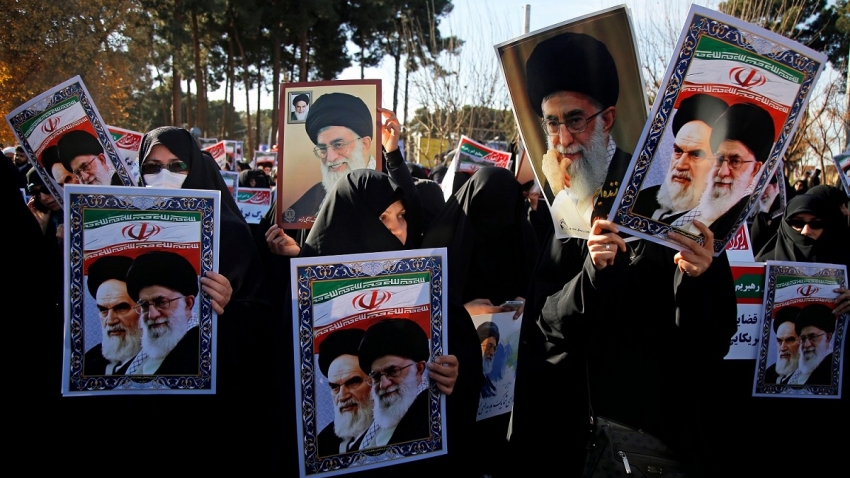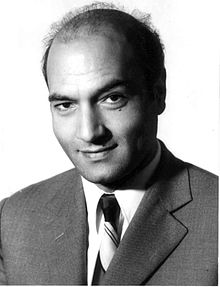
Among us, the insignificant has become great, while the great is laid low, defeat has become victory, the means has become the end, the ignorant is now a scholar and the process of thinking itself has been turned into an act of disbelief.
ARAB ISLAMIC SOCIETIES are greatly influenced by the day-to-day religious discourse that impacts upon their thinking, behaviour and daily activities, and determines the way they ponder their problems and their prospects. Today, as satellite channels mushroom and religious programs increase in number (even on non-religious channels) with all their extensive following, the depth of this phenomenon is revealed along with the true crisis facing societies which have remained retarded and backward. Contemporary religious discourse is identical to classic, ancient discourse and is closest to Platonic logic in its superficial, simplified, patronising view of humanity, with its call to change their nature and root out selfishness, self regard and evil.
In the view of preachers, sermonisers and clerics in both Sunni and Shīʽī mosques and religious centres a mere sermon is enough to change individuals and their personalities, despite the fact that over history this has never occurred, since the human psyche has its own nature, its own properties and distinguishing features. Everyone loves himself, and pursues his own interests, and selfishness is a constituent a part of his essence. How then can a sermon remove this? It first requires a study of human nature, for as Bacon put it: “In order to govern nature you must first study it”. This is a solid, objective, scientific matter.
The Iraqi social reformer ‘Ali al-Wardī, who graduated from the University of Texas in 1950 and studied Iraqi and other Arab societies, was aware of this and writes:
You cannot reform human nature by a mere sermon. Sermonisers consider that the human psyche is like a cloak that can be washed with soap and water to remove its incidental stains from it.
He goes on to add:
If we told people to discard envy and selfishness, it would be as if we were saying to them that they should dispense with their human nature and become like angels.
We find preachers who are unable to distinguish between cause and effect
It is not possible for a human being to be an angel and it requires objective study to understand causes and deal with them in a scientific manner. We find preachers, on the other hand, who are unable to distinguish between cause and effect and, as the English saying goes, they ‘place the cart before the horse’ and make the cause the result and vice versa. Of all people, preachers are therefore the most removed, in terms of their conditions and practices, from these very same emotional, vehement sermons. For they have ever remained luxuriant, sanctified and affluent due to their alliance with the rich and the powerful, and most protective of their interests. Indeed they have always provided a religious, legal dressing to their oppression, luxury, tyanny and corruption.
On the preachers’ double-standards and their siding with the oppressors against the oppressed, al-Wardī had this to say:
It does appear to me that this is the instinct of the preachers among us, for they leave the oppressors and the affluent to do whatever they want and they focus all of their interest on the poor, searching out their peccadillos, making their lives loathsome and warning them of woes and travails in this world and the next. The reason for this bias in sermons, I feel, goes back to the fact that the preachers were – and still are – living off the crumbs of the tables of the rich and the oppressors. Their livelihood is dependent upon gaining the favour of those in power, so you therefore see them turning a blind eye to their arbitrary behaviour, to their plundering, to their luxury, and moreover pray for their longevity.
Al-Wardī goes on to say that the exploitation of preachers by tyrants takes place for a purpose, and that purpose is to numb people from understanding the great level of oppression the despots are inflicting upon them:
It appears that the despots have found in the preachers their best aid for distracting their flocks and anaesthetising them. People have come to be preoccupied with sermonising each other and thus have taken their minds of the oppression that has befallen them at the hands of these tyrants.
This is what al-Wardī means by the benumbing and distracting role of the preachers. In his book Eminence and Asinification Ali Shariati referred to it as a process of ‘religious transformation into an ass’. In this work he depicts the process of asinification by religious circles as one of its greatest and strongest features from antiquity to the present-day. He defines it as ‘the use of religion to turn human minds into asinine minds’, a process disseminated by the class of clerics who are well-known for their distortion of all conceptions of consciousness, intellect and understanding and for their confiscation of free will and reflection, for their promotion of ignorance, negligence and mind-numbing practices. Shariati considers it to be a complete and full counterpart to the role of the church in the Middle Ages, with its promotion of backwardness and the sale of indulgences, done at the time in the face of reason, knowledge and reflection.
A Qur’ānic example of one such preacher is the religious scholar Balʽam bin Bāʽūra described by the Almighty in the following terms:
Therefor his likeness is as the likeness of a dog: if thou attackest him he panteth with his tongue out, and if thou leavest him he panteth with his tongue out. [1]
The doctors of law engage in enslaving, asinifying and impoverishing the intellect of others and commanding those who are in thrall to them to blindly obey them and devalue the intellect. They do this based on their claim to be God Almighty’s representatives, as if they were sainted, infallible persons, able to bestow paradise and its keys upon those who serve their interests and the interests of those allied with them, and withdraw them from those who oppose them. This is despite the incoherence of their discourses and the contradictoriness of their behaviour, despite their warring among themselves and their mutual accusations of Disbelief. In his call for contemplation, reflection and the employment of the intellect and the spread of consciousness, Shariati sums up this process of asinification as:
any individual or collective issue, be it cultural or moral or philosophical or religious or what have you, which is alien to the noble aspects of the human being and human society.

Suggested Reading
But I think that imitation and conformity are themselves a form of religious asinification and benumbing of the Arab mind, designed to desensitise it so that it repeats what it hears like some parrot devoid of consciousness, reflection or rationality. In Shīʽa Islam the phenomenon of conformity to religious authority constitutes a form of priesthood and the rule of clerics, what with their control over the minds and the wealth of others, in particular the khums tithe and the control they wield over thoughts and behaviour, to the point of turning others stupid in an age of human progress and cultural advance. This at a time when it is necessary to keep pace with human productivity and modern theories, so as to keep up with the modern age, in place of promoting blind repetition of worn out, ancient tales that conflict with, and are certainly not conducive to, modern or post-modern consciousness. The Qur’ān itself repudiates conformity and prohibits it on many occasions as some form of bad habit alien to the intellect and reflection, as in the following passage:
[And even so We sent not a warner before thee (Muhammad) into any township but its luxurious ones said]: Lo! we found our fathers following a religion, and we are following their footprints. [Qur’ān XLIII, 23]
They say: Enough for us is that wherein we found our fathers. What! Even though their fathers had no knowledge whatsoever, and no guidance? [Qur’ān V, 104].
This conformity to the words of a cleric – even in matters in which he has no specialist knowledge, as if the cleric knows everything the world and is experienced in all of the sciences – means that they can issue fatwas on matters of political authority (on which God gave no guidance), and prohibit everything that is novel, every new discovery of science, for fear that it may open up the mind. Everyone remembers the fatwas that were promulgated forbidding television, aircraft, automobiles and suchlike when they were first discovered. Some of these clerics even said: “Will ye forsake God’s asses and ride the asses of Satan?” in the deluded belief that these discoveries were nothing but ruses of the infidel West to strike against Islam and the Muslims. And what about the prohibition of schools, or the issuing of fatwas authorising the declaration of others as ‘disbelievers’, and licensing hatred and violence against many other communities, to the point of proscribing their blood, wealth and dignity.
In fact, they continue to do this to the present-day with their continued belief in the propriety of owning male and female slaves (‘that which thy right arm possesses’). Support for this can be found in contemporary religious law and the farce that passes for what they call the ‘pragmatic Message’ of Islam, such as Al-Khoei’s and al-Sīstānī’s Practice of the Righteous Ones or Khomeini’s Commentaries on the Liberation of The Intercession[2], or al-Kalbikānī’s Guidance of Slaves, al-Isfahānī’s Means to Salvation, or the Treasury for Slaves by al-Khurāsānī, al-Shahrūdī and al-Shīrāzī, al-Hā’irī’s Collected Verdicts, The Clarification of Issues by al-Borujardī, al-Maylānī and al-Arākī or the Firm Tie of Muhammad Kāzim al-Tabātabā’ī al-Yazdī and dozens of other Shia commentaries.
The civilised cultured world has surpassed all these things, in that international law, human rights and global legal systems all reject the principle of slavery. These clerics, on the other hand, continue to divide up humankind into the free and the enslaved, and consider slaves to own nothing, neither the sweat of their brow nor the product of their labours – everything belongs to their masters and owners (“the servant and what he possesses belongs to his master” and “that which they right arm possesses”). One can find examples of this particularly in the wake of the Islamist rise in Iraq, Iran, Egypt and Tunisia, and indeed wherever preachers exercise rule and authority and where the preacher himself has become a ruler.
We should indeed mix our laughter with sadness when we ponder our reality
This calls to mind the dominion of the church in the Middle Ages, a dominion that was far removed from reality, from life and its modern, civilised development. One of the finest characterisations of our present reality is that provided by Ali al-Wardī:
While I was in America a violent conflict broke out among Muslims concerning Ali and Umar. Nerves were frayed and old grudges brought out. The American asked me about Ali and Umar, were they some contemporary rivals for power like Truman and Dewey? I answered “No, they lived 1,300 years ago and the conflict now concerns which of these were more qualified to become caliph.” And the American burst into laughter at my answer until he almost split his sides – I also laughed greatly along with him, but my laughter was tinged with sadness and mourning for the state we had been reduced to.
We should indeed mix our laughter with sadness when we ponder our reality, and we should repeat what the poet al-Mutanabbi said:
Is the point of religion to trim your moustaches, O Nation, whose ignorance has caused other nations to laugh?
Thus, among us, the insignificant has become great, while the great is laid low. Among us, defeat has become victory, the means has become the end, the ignorant is now a scholar and the intellectual a ‘disbeliever’, the innovator is a ‘madman’ while the charlatan is the one to have recourse to, the preacher is sanctified, superstition has become a religion, hypocrisy a career, rituals pass for religious sentiments, reform constitutes heresy, renewal deviancy, criticism is ‘atheistic freethinking’ and the process of thinking itself has been turned into an act of disbelief.
[1] Qur’ān VII, 176. Balʽam bin Bāʽūra is held to be an ancient sage and advisor to the rulers of Jerusalem who was tasked with warding off the advance of Mūsā (Moses) through cursing them. The tale appears in the Torah Book of Numbers, 22-24. In the New Testament (II Peter, 2 and Jude 1:11) the story of ‘Balaam son of Beor’ is given as a warning to the early Christians to beware of religious leaders who are enjoying financial advantages. Muslim scholars explain the verse as a parable of a man who persists in the wrong path and is unable to benefit from faith or comprehend what he is being called to. (Ed)
[2] A commentary covering socio-political issues and the question of Islamic government. It includes passages stating that the Imam, or leader of the Muslim community, has the right to fix prices and otherwise regulate commerce if he feels it is ‘in the interest of Islamic society’. It also dealt with the issue of foreign policy and the necessity of preventing the Muslim community ‘from falling under the influence of foreigners.’ The publication of the work was responsible for securing Khomeini’s reputation in the early 1960s and raising his status as a jurist. (Ed.)



